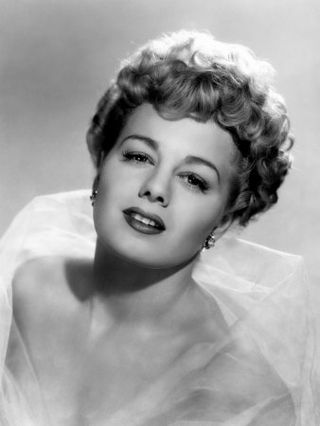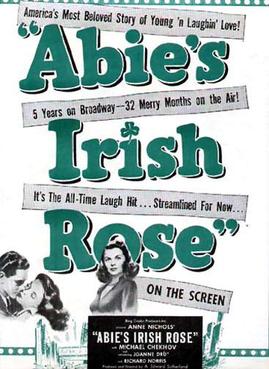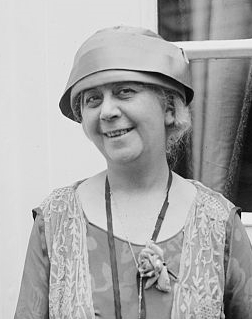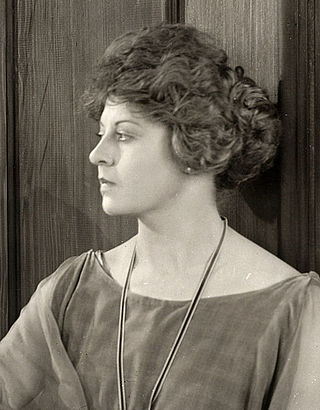Related Research Articles

Shelley Winters was an American film actress whose career spanned seven decades. She won Academy Awards for The Diary of Anne Frank (1959) and A Patch of Blue (1965), and received nominations for A Place in the Sun (1951) and The Poseidon Adventure (1972), the latter of which also earned her a Golden Globe Award for Best Actress in a Supporting Role - Motion Picture. She also appeared in A Double Life (1947), The Night of the Hunter (1955), Lolita (1962), Alfie (1966), Next Stop, Greenwich Village (1976), and Pete's Dragon (1977). She also acted on television, including a tenure on the sitcom Roseanne, and wrote three autobiographies.

Stella Adler was an American actress and acting teacher.

William Lee Tracy was an American stage, film, and television actor. He is known foremost for his portrayals between the late 1920s and 1940s of fast-talking, wisecracking news reporters, press agents, lawyers, and salesmen. From 1949 to 1954, he was also featured in the weekly radio and television versions of the series Martin Kane: Private Eye, as well as starring as the newspaper columnist Lee Cochran in the 1958–1959 British-American crime drama New York Confidential. Later, in 1964, he was nominated for an Academy Award for Best Supporting Actor and a Golden Globe for his supporting role in the film The Best Man.

Charles Edward "Buddy" Rogers was an American film actor and musician. During the peak of his popularity in the late 1920s and early 1930s, he was publicized as "America's Boyfriend".

Abie's Irish Rose is a popular comedy by Anne Nichols, which premiered in 1922. Initially a Broadway play, it has become familiar through repeated stage productions, films and radio programs. The basic premise involves an Irish Catholic girl and a young Jewish man who marry despite the objections of their families.

Zohra Lampert is a retired American actress, who has had roles on stage, film and television. She performed under her then-married name of Zohra Alton early in her career.

Anne Nichols was an American playwright best known as the author of Abie's Irish Rose.

Carmel Myers was an American actress who achieved her greatest successes in silent film.

Louise Closser Hale was an American actress, playwright and novelist.

Gertrude Astor was an American motion picture character actress, who began her career playing trombone in a woman's band.

Abie's Irish Rose is a 1928 early sound (part-talkie) film directed by Victor Fleming and starring Charles "Buddy" Rogers, Nancy Carroll, Jean Hersholt, and J. Farrell MacDonald. In addition to sequences with audible dialogue or talking sequences, the film features a synchronized musical score and sound effects along with English intertitles. The soundtrack was recorded using the Western Electric sound-on-film system. The film based on the 1922 play Abie's Irish Rose by Anne Nichols. The film was later remade in 1946. In the 1930s, author Nichols revealed that her deal with Paramount brought her $300,000 plus half the film's profits.

Anita Gillette is an American actress and singer. She has performed numerous roles on Broadway, American television, and in feature films.

Aideen O'Kelly was an Irish actress of stage and television, who worked in both Ireland and the United States. She was nominated for a Drama Desk Award for her performance in Othello in 1982.

The New Victory Theater is a theater at 209 West 42nd Street in the Theater District of Midtown Manhattan in New York City, near Times Square. Built in 1900 as the Republic Theatre, it was designed by Albert Westover and developed by Oscar Hammerstein I as a Broadway theater. The theater has been known by several names over the years, including the Belasco Theatre, Minsky's Burlesque, and the Victory Theatre. The theater is owned by the city and state governments of New York and leased to nonprofit New 42, which has operated the venue as a children's theater since 1995. The New Victory presents theater shows, dance shows, puppet shows, and other types of performance art shows from all around the world.

The Cohens and Kellys is a 1926 American silent comedy film directed by Harry A. Pollard and starring Charles Murray, George Sidney, Kate Price, and Jason Robards Sr. The film is the first of the Cohens and Kellys film serials. The film is perhaps best known today as the subject of Nichols v. Universal Pictures Corp., a copyright infringement case, in which Judge Learned Hand articulated the doctrine that copyright protection does not cover the characteristics of stock characters in a story.

Abie's Irish Rose is a 1946 American comedy film directed by A. Edward Sutherland based on a play by Anne Nichols. The film stars Michael Chekhov, Joanne Dru, Richard Norris, J. M. Kerrigan, George E. Stone, Vera Gordon, and Emory Parnell. The film was released on December 27, 1946, by United Artists. It was a remake of the 1928 film that was based on the 1922 play Abie's Irish Rose by Anne Nichols. The film drew criticism for stereotyping and additional cuts were made after complaints.
Bernard Gorcey was an American actor. He began in Vaudeville, performed on Broadway, and appeared in multiple shorts and films. He portrayed ice cream shop proprietor Louie Dumbrowski in Monogram Pictures' The Bowery Boys series of B movies. He also appeared in Charlie Chaplin's 1940 classic The Great Dictator.

Village East by Angelika is a movie theater at 189 Second Avenue, on the corner with 12th Street, in the East Village of Manhattan in New York City. Part of the former Yiddish Theatre District, the theater was designed in the Moorish Revival style by Harrison Wiseman and built from 1925 to 1926 by Louis Jaffe. In addition to Yiddish theatre, the theater has hosted off-Broadway shows, burlesque, and movies. Since 1991, it has been operated by Angelika Film Center as a seven-screen multiplex. Both the exterior and interior of the theater are New York City designated landmarks, and the theater is on the National Register of Historic Places.

Dorothy Miller, better known by her stage name Dorothy Hall, was an American actress in the late 1920s and early 1930s.

Vera Pogorelsky Gordon was a Russian-born American stage and screen actress.
References
- 1 2 3 4 5 6 "Ida Kramer Dead; In 'Abie's Irish Rose'". The New York Times. October 16, 1930. p. 22. ProQuest 98887384 . Retrieved February 16, 2021– via ProQuest.
- 1 2 3 "Ida Kramer, Principal in "Abie's Irish Rose" Dead at 52". Jewish Telegraphic Agency. Archived from the original on February 16, 2021. Retrieved February 16, 2021.
- 1 2 3 Britt, George (August 22, 1925). "It's Abie's Mama's Turn to Laugh". The Rock Island Argus. Illinois, Rock Island. p. 10. Retrieved February 16, 2021– via Newspapers.com.
- 1 2 Gebhart, Myrtle (March 1928). "A New Accent in Hollywood". Picture Play: 31, 112. Retrieved February 16, 2021.
- ↑ "Ida Kramer". Internet Broadway Database. The Broadway League. Archived from the original on February 16, 2021. Retrieved February 16, 2021.
- ↑ "Abie's Irish Rose on Screen". The New York Times. April 15, 1928. p. 118. ProQuest 104586584 . Retrieved February 16, 2021– via ProQuest.